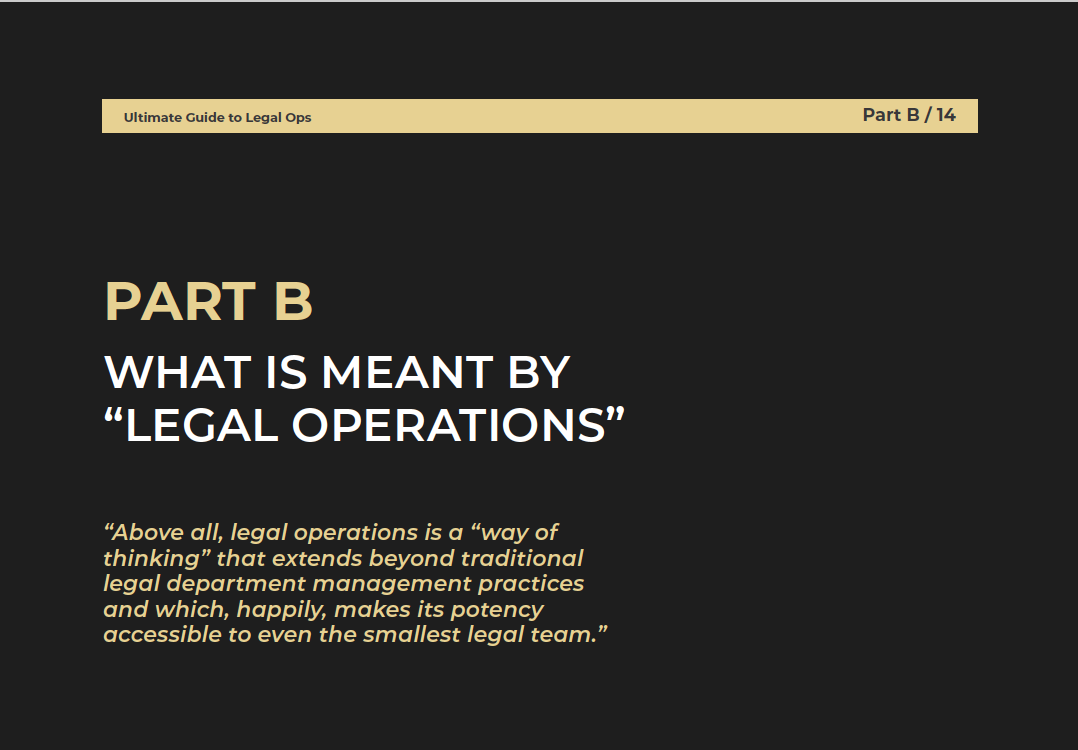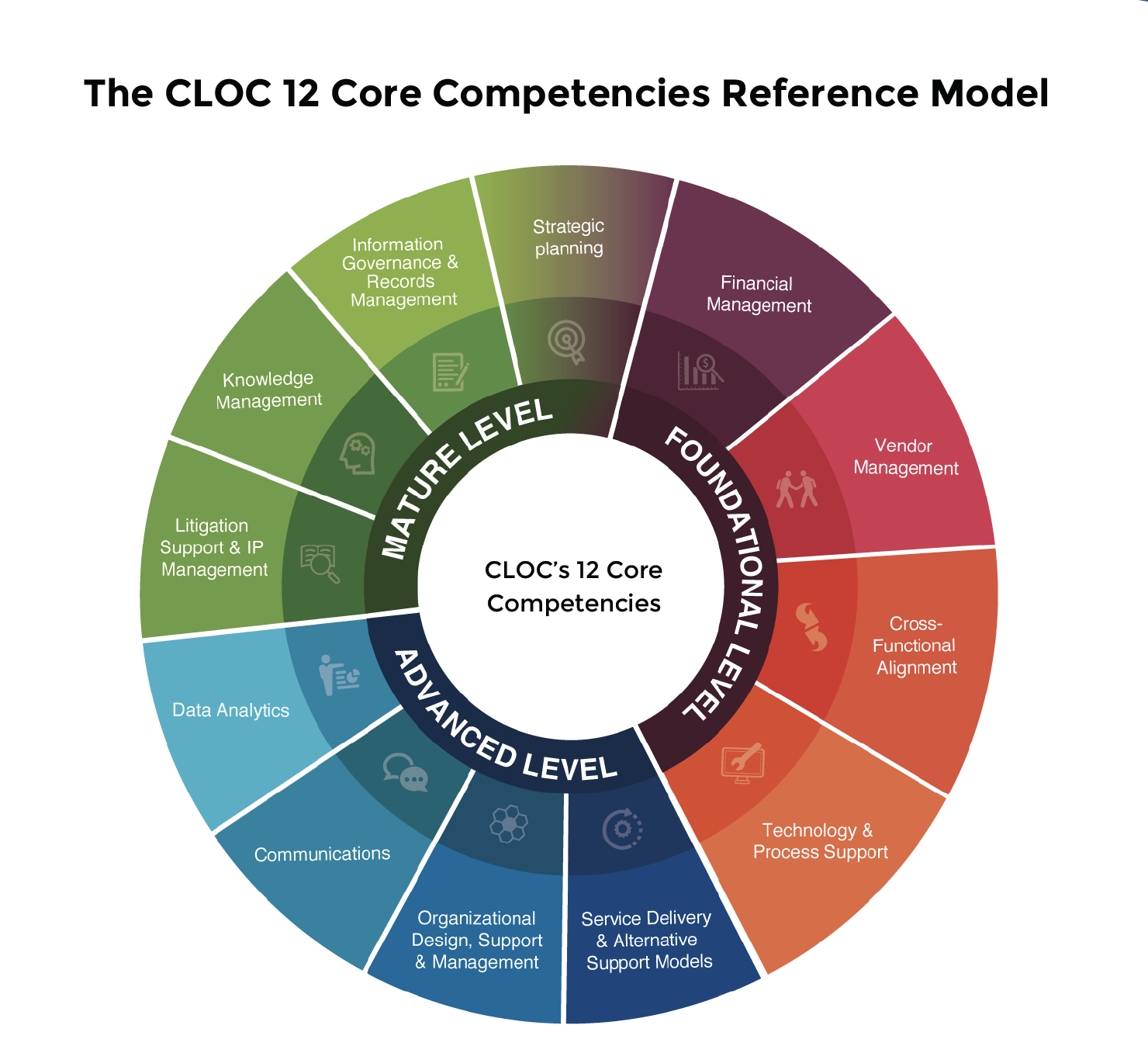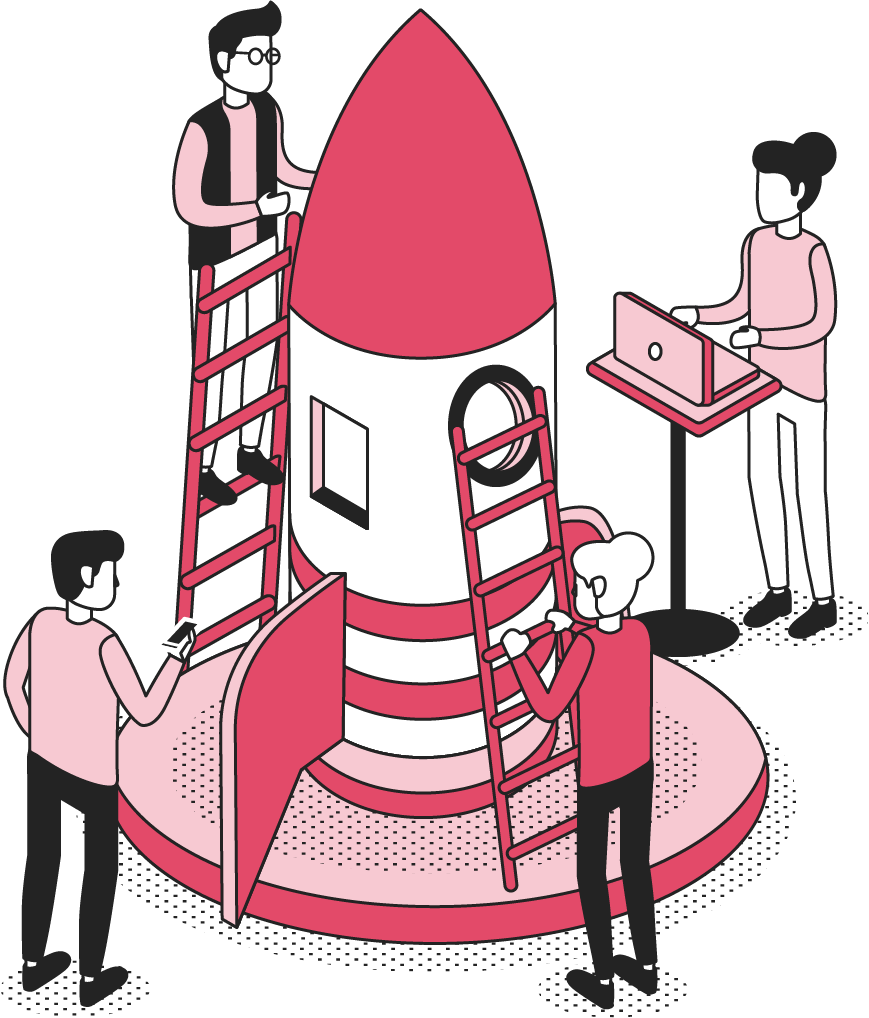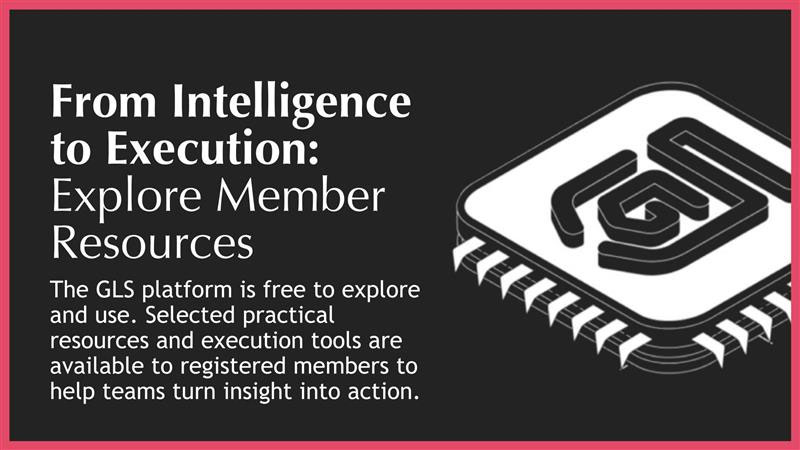Back
What is meant by Legal Operations (Part B - GLS’s Ultimate Guide to Legal Operations)
15 mins • 21 Nov 21

This is a sample chapter from the recently published ‘GLS Ultimate Guide to Legal Operations’ . It's a revolutionary look into In House Legal (IHL) processes, with 14 dedicated chapters on how to improve the efficiency of your legal function. To get your copy of the entire ebook for free, click here.
PART B: IT IS ABOUT LEGAL RESOURCE AND PROCESS OPTIMISATION
Legal operations: per se is a relatively new term to be bandied about in legal circles but what does it really mean, and what should it mean for you, your IHL, and your business?
The Corporate Legal Operations Consortium or CLOC – a relatively recently established and the most prominent of the US-based “pay to participate” legal operations associations, defines legal operations as:
“a set of business processes, activities, and the professionals that enable legal departments to serve their clients more effectively by applying business and technical practices to the delivery of legal services.”
Whilst accurate, the problem with this definition is that while it might serve a “think-tank” body whose members are dedicated legal operations personnel, it is not particularly accessible nor user-friendly for the "average legal team" that:
• is looking to improve their performance:
• has limited resources available to it; and
• is currently unable to employ dedicated legal operations personnel.
The above is the reality for most IHLs and is in sharp juxtaposition to the organizations that the leadership of CLOC represents – i.e. Google, Microsoft, Gap, Oracle, Fidelity Investments, etc.

Major multinationals have far more resources than the average IHL. As such, the extent to which CLOC’s leadership (and the agenda they set) can relate to the chronic challenges faced by all IHLs is obviously an issue.
We flag this not to be critical, but to simply acknowledge that thought leadership in the legal industry (along with legal press coverage) has historically tended to only focus on “Big Law” firms and “Big Clients”.
Indeed, in CLOC's "2021 State of the Industry Survey" – a typical CLOC member's ‘small legal dept' is profiled as having 15 full-time lawyers. Additionally, survey respondents had on average 7 FTE dedicated legal operations headcount. Sadly, this is not what 95%+ of the world's legal departments look like. Most are 1 or 2 lawyers, with no legal ops personnel at all!
Given the potential that legal operations offers to drastically improve the performance of all IHLs, we feel it is imperative that legal operations are not perceived as the exclusive domain of only the biggest IHLs.
CLOC, like any interest-based group, is free to determine whose “interests” it chooses to represent. CLOC is therefore under no obligation to act as a “lightning rod” for legal-industry-wide change of the kind we pursue at GLS.
The point we seek to make though is about context – that legal industry thought leadership and associated headlines tend to be dominated by the 1% of Firms and their Clients. This means that coverage of the real issues faced by the majority of IHLs can be harder to assess. In short, Google’s legal department is not a bellwether for the average IHL with its 1 to 2 legal team members.
For a much clearer idea of the burning issues faced by most IHLs on a daily basis – please see our opinion piece on the "Top 10 In-House Legal Team Resolutions for a New Year".
What is desperately needed by the legal industry is a large dose of "whatever it takes" to make legal support more accessible to all businesses – and this means presenting legal operations in a way that is easily accessible. Accordingly, at GLS, we view “legal operations” as:
“the means of maximizing the productivity expression of ALL available IHL resources, in verifiable ways, and which drive IHL value recognition.”
Our definition makes the discipline of legal operations accessible to all IHLs – it makes it more of “a way of thinking”, as opposed to “another department” or set of practices that are only available to dedicated legal operations professionals with significant resources.
Legal operations is not an “exclusive domain”. By simply cultivating a legal operations mindset any IHL can access a powerful and viable means to elevate performance. You certainly do not need a legal team of 15+ lawyers in order to massively benefit from legal operations.
Legal operations, as propagated and practiced by GLS, is an inclusive concept that all IHL teams in any business in any jurisdiction can access simply by adjusting the way they think about resourcing decisions and tracking outcomes.

EFFECTIVE LEGAL OPERATIONS IN 7 WORDS
Without getting “too deep into the weeds”, here are a few key observations as to what the discipline of legal operations entails. These observations are built around 7 simple words that sum up our view of legal operations:
NEEDED
There is not a business on the planet where the demand for legal support does not exceed the available in-house resources, especially where such support has not been optimized and/or prioritized.
The goal of legal operations is to enable the IHL to deliver greater levels of support to the business whilst reducing human and financial resource consumption, and to do so in a way that helps the business recognize and appreciate the support being given to it.
Legal operations is therefore an essential agenda item for all IHLs that are looking to deliver high-caliber performances, no matter their size or budget.
FOCUS
A legal operations agenda can only ever succeed if it maintains a laser-sharp focus on realistic objectives. Whatever those objectives are, they must be kept front of mind.
At the “30,000 foot” level, your legal operations agenda should focus on:
• ensuring every category of available IHL resource is identified and performing optimally; and
• optimizing all the tasks that do not require a legal qualification in order to free up the capacity of your lawyers so that they can focus on legal work.
As your agenda progresses, this focus can be refined to match the sophistication of your IHL – there are literally hundreds of distinct and accessible transformation focal points that have their time and place in a full IHL Transformation.
With the understanding gained from the full GLS Ultimate Guide to Legal Operations, identifying when and where you should place your efforts will become a logical process that occurs in sync with your organization’s tolerance for change.
MANDATE
Legal operations require legal and compliance functions to define a clear mandate of responsibility, in the context of which the IHL can help their business to realize its strategic goals.
If you do not know what you are responsible for, it is difficult to launch a truly efficient legal operations agenda. This will be a major hurdle for many IHLs that have “evolved” into existence rather than being designed for efficiency from the DNA level up.
GLS discussed the importance of legal teams establishing their respective mandates in our 2020 Legal Operations Webinar Series (which we obviously recommend watching). Not having a proper IHL mandate (in the form of a Group Legal Policy) merely cultivates inefficiencies.
An effective IHL mandate is required at an operational level as without it, IHLs cannot efficiently “priority-task” finite legal team resources or thereafter objectively judge the team’s performance.
Indeed, the growing interest in “legal operations” presents an opportunity for many IHLs to finally get a formal domain of responsibility defined by their business – establishing a clearly articulated mandate is simply the logical response to a business that is demanding “better performance”.
If the business wants improved performance, IHLs should ask the business for a clear definition of what it is that they would like to see improved (i.e. a mandated scope of IHL operations) so that the IHL can do just that.
Related Resource: GLS Legal Operations Master Class (2020) – Webinar 2 – Foundational Legal Team Policy Assets & Prioritisation
Related Resource: GLS Group Legal Policies™ – Know What You Want To Achieve
Related Resources: Contracting Policies: Eliminate Weakness in your contracting function
THINKING
Above all, legal operations is a “way of thinking” that extends beyond traditional legal department management practices and which, happily, makes its potency accessible to even the smallest IHL.
Effective legal operations require an awareness of all of the IHL’s available resources and priority tasking them, with a focus on i) productivity leverage and ii) ways that allow for performance verification.
We have generated an IHL Transformation decision- making framework that we call “R.P.L.V.” (i.e. “Resourcing / Prioritisation / Leverage / Validation”) that instantly places IHL operational decisions into a strategic transformation context.
We unpack R.P.L.V. in more detail, particularly in relation to how it effortlessly places “daily resourcing” decision-making into a strategic IHL Transformation context in our White Paper R.P.L.V.: Transformative Decision Making (and also in Part J of the GLS Ultimate Guide to Legal Operations).
DATA
IHLs must better prioritize their focus, leverage every resource allocation, and measure their performance to facilitate ongoing optimization decisions and demonstrate the value that their actions deliver to the business.
Enhancing efficiency within an IHL requires that IHL to operate on the basis of empirical data – rather than just operating on the basis of guesses or “Old Law” networks. Such inefficient decision-making processes frequently deprive an IHL’s internal clients of maximum value.
Data analysis and reporting are critical aspects of legal operations. IHLs must harvest the data generated by their workflows to enable ongoing optimization and resource allocation performance.
Related Resource: GLS Legal Dept. KPI Manual™ – Commonly Used Legal Dept. KPIs
MULTIDISCIPLINARY
Legal operations is a multidisciplinary competency that draws on backgrounds like finance, marketing, data analytics, technology, learning & development amongst other areas.
A mature IHL will develop a dedicated legal operations function to provide strategic planning, financial management, project management, and technology portfolio investment expertise – freeing up the lawyers to focus on providing legal advice.
As the size and maturity of an organization increases, so too does the case for dedicated legal operations staff – something which many of the largest US-based MNCs have already implemented (or are in the process of doing so).
However, for teams too small to have dedicated legal operations staff, useful skills can be developed through the application of a bit of time and effort. The key point to remember though is that if this gets to the point that your lawyers are being diverted from “lawyering”, then you have gone too far. (We investigate this in Part F of the Ultimate Guide: The Interactive GLS Legal Transformation Tube Map which speaks to the GLS Legal Transformation Tube Map)
A core tenet of legal operations is, after all, to remove as many “non-strategic distractions” from your lawyers as possible (see Part C: The Case For Legal Operations. Section “F1 Drivers do not wash their Own Car”).
Related Resource: The CLOC Website

SOLUTIONS
Transformation is about solving problems – so to transform your legal team effectively, you must develop a clear understanding of the problems you are trying to solve.
Indeed, we have seen that effective IHL transformers consistently demonstrate problem-solving that not only overcomes their immediate problems but also creates an ongoing competitive advantage for their business.
For IHLs, the core challenge is figuring out how to achieve “more with less”, which means finding new ways of working and embracing such new technologies that are capable of delivering ongoing value and savings, and a fast ROI.
In many cases, as you get into the specifics of your IHL transformation journey, you may find that your problem is actually just limited to a few critical components that define the overall productivity of what is otherwise a well-constituted IHL process.
The key to an IHL’s transformation is, therefore, to efficiently identify what are the problems that are preventing its performance optimization, and then to efficiently find the solutions to those problems.
It is for this reason that every tool, solution, and/or resource found on the GLS Legal Operations Centre is defined by reference to a very specific underlying problem (and related challenges) that IHLs want to address.
The next time you deal with a problem inside your IHL, we recommend that you visit the GLS Legal Operations Centre to see if we haven’t already developed a specific solution to resolve that problem for you.
Chances are that most issues you face are not unique to your organization. As such, it is likely to be one of the problems that we have already addressed with a sustainable solution via the GLS Legal Operations Centre.
WRAPPING IT UP SO WE CAN MOVE IT FORWARD
Broadly speaking, the reality is that most legal departments do not currently have a dedicated legal operations function due to one or more of the following factors:
not being familiar with what legal operations entail
thinking that their legal team is too small to benefit from legal operations
antiquated legal department management styles or
a wholly erroneous perception that legal operations is just “another cost”
However, as long as your team is under-resourced, it will have to develop an increasingly sophisticated legal operations mindset – which does not cost a cent.
This means that all in-house lawyers will need to become increasingly familiar and competent with legal operations – many aspects of which are not vocationally delivered to the average lawyer.
Fortunately, however, lawyers are typically experts at acquiring new skills and as such can readily learn, adapt and implement many “legal operations fundamentals”, including those set out in the full GLS Ultimate Guide to Legal Operations.

Ready To Transform Your Legal Team?
Please check out the GLS solutions and know-how resources listed on the right side of this page – they might assist your legal team with the issues explored in this Blog.
© The GLS Group - Law Rewritten

The GLS Legal Operations Centre
Register to access your complimentary Day 1 Resource Stack packed with legal team performance resources.

GLS Ultimate Guide To Legal Operations
Download this and read it thoroughly and regularly. It is a wonderful transformation companion.

Book A No-Obligation Consultation
If you would like discuss your legal transformation needs, please book a 30 minute free consultation with us.

GLS Legal Transformation Boot Camp
Our hugely successful, 10-week long, email-based boot camp on how to effectively transform your legal team.



